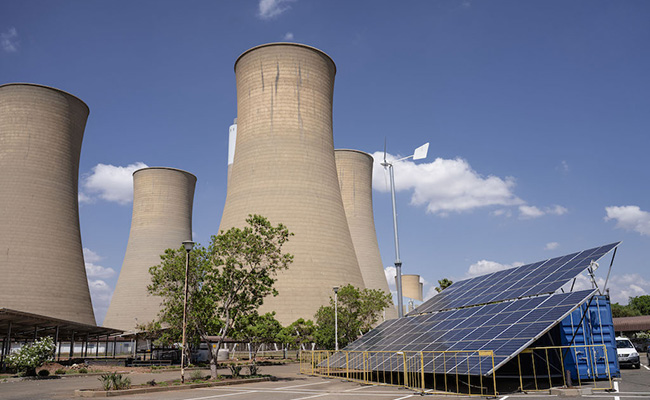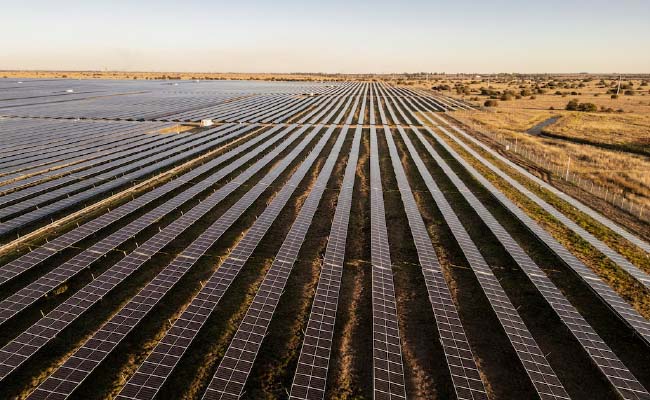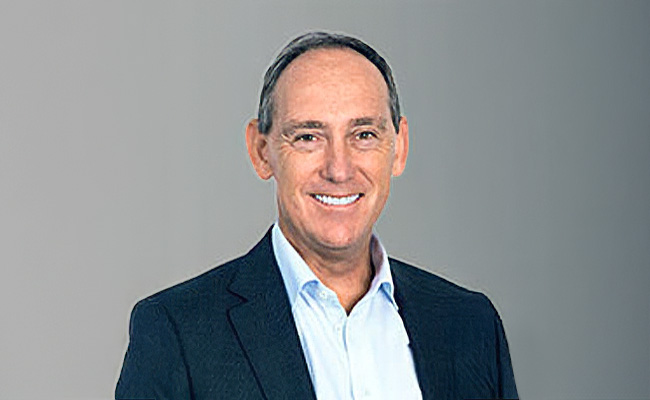Mike Teke, the founder of mining company Seriti, has mounted an extraordinary plea to banks to put their financial muscle behind the dirtiest fuel out there, coal.
This request, made on behalf of the lobby group FutureCoal which Teke chairs, runs against the trend of banks coming under pressure to slash funding for new coal plants to ensure countries meet their Paris Agreement goal of limiting global warming to 1.5°C above pre-industrial temperatures.
In Teke’s open letter this month, he urged the “leaders in banking, investment, and insurance to be bold, informed and united” to ensure “this vital resource” continues to serve society. “It is time to fund coal, metallurgical and modern, low-emission thermal coal, fairly and equally,” he wrote.
Teke argued that coal remains the largest source of electricity, meeting 33% of global power demands, with coal consumption reaching a record high last year. Banks have invested more than $130bn in coal projects across Asia, the US and Europe.
He argued that despite coal’s “enduring role” in industry, energy security and economic growth, coal is still “unfairly treated”. Instead of ditching coal, the lobby group is advocating for a “Sustainable Coal Stewardship” framework, which it says could reduce emissions from coal by 99%.
Intuitively, this seems implausible, but FutureCoal says this would be possible by using technology including AI, carbon capture, coal gasification plants, and innovations such as coal-to-hydrogen, and converting coal waste into critical minerals and rare earth elements. These technologies, it said, are already being implemented in South Africa, India, Japan, China and the US.
It’s a contentious claim – and one which a number of civil society organisations say is simply not true.
“There’s no evidence whatsoever that the coal industry will be able to cut emissions by 99%,” says David Le Page, the director of Fossil Free South Africa. “It doesn’t even make sense economically, if you examine the energy needed for many of these carbon capture and storage projects.”
Le Page says this effort to woo back financing for coal is a rearguard action from an industry resisting the inevitable advance of renewable energy.
“The writing is on the wall for them, since renewables have become the cheapest options in most countries. But that doesn’t mean there isn’t still a lot of money to be made by those coal companies which continue to benefit from government subsidies for coal,” he tells Currency.
‘Greenwashing’
Last week, 13 civil society organisations signed a joint response to FutureCoal, accusing it of creating “false narratives” to prolong the lifespan of coal. “This argument distorts the facts to justify an extended lifespan for an industry whose social and environmental licence to operate has expired,” they said.
These organisations include local organisations like Just Share, the Centre for Environmental Rights, the African Climate Alliance, Fossil Free SA, and international groups like BankTrack and Urgewald.
They argued that banks are slashing their funding for coal not because of an “ideological” opposition to coal, but rather because they realise that alternative energy is now cheaper and cleaner, and investing in stranded assets like coal mines is “bad for their balance sheets”.
There is “no such thing as clean coal”, said the civil society groups, and to suggest this is real “fundamentally misrepresents both the current state of technology and the urgency of climate action, and ignores crucial technological and financial constraints that cast doubt on the viability of the proposed solutions”.
The coal industry’s idea of mitigating emissions through “carbon capture utilisation and storage” is also overhyped, they said, because global research shows that this technique has only been able to capture 0.14% of CO2 per year.
“Their claim that the coal industry can be transformed through ‘sustainable coal stewardship’ is a deliberate attempt to greenwash coal’s impacts in order to extend the life of coal assets and delay climate action,” they said.
Nor is coal treated “unfairly” by banks, they said. The International Monetary Fund says global fossil fuel subsidies amounted to $7-trillion in 2002, in the form of tax-breaks, lower-interest loans, and underpriced energy. In South Africa, these subsidies actually tripled between 2018 and 2023, hitting R118bn.
Yet the FutureCoal plea has arrived at a fragile time for climate efforts, with US President Donald Trump dismantling many of the American government’s climate institutions based on the premise that climate change is a myth. Earlier this year, Trump torpedoed the US government’s $100bn participation in a $45bn just energy transition programme aimed to help South Africa, Vietnam and Indonesia shift their economies.
Le Page says even this ideological support from Trump, who pledged in the first days of his administration to “drill baby drill”, is unlikely to change the trajectory for coal.
“There’s no doubt that Trump’s actions have increased the headwinds against renewables. But even within the most conservative parts of the US, the renewables industry is developing by leaps and bounds, irrespective of what happens in the White House. It won’t be possible to reverse this long-term trend at this point,” he says.
But, Le Page adds, this is almost incidental for the coal lobbying. “What they are trying to do is profit from irrational coal subsidies in the short term, and they don’t have to truly see any real long-term future for coal.”
Top image: Rawpixel/Currency collage.
Sign up to Currency’s weekly newsletters to receive your own bulletin of weekday news and weekend treats. Register here.











